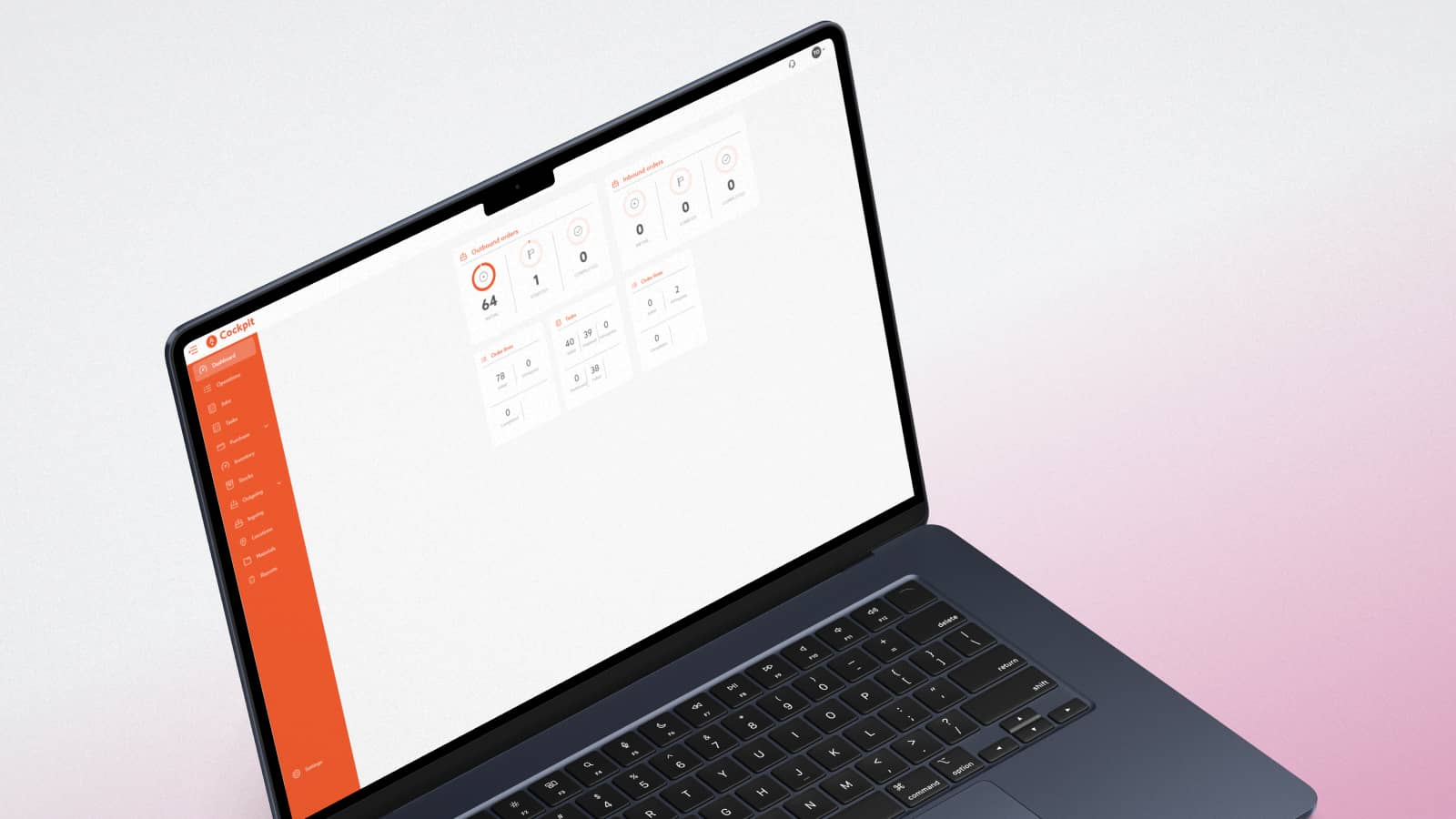How we helped build stable and scalable WMS software

Altimi supported a leading Danish WMS provider in developing modern, mobile-first WMS software. By combining deep logistics expertise with Agile methodologies, we enabled the modernization of warehouse operations, enhanced efficiency, and ensured the stability and scalability of WMS systems.
Modernizing core WMS capabilities without losing speed
The Danish WMS provider aimed to develop a next-generation WMS platform to meet the growing demands of the logistics market. The main objectives of the project included leveraging years of logistics experience, improving user experience across multiple devices, and supporting both traditional warehouse terminals and modern Android/Windows smartphones.
The company faced several constraints, including limited internal development resources, tight deadlines, and the need for experts experienced in .NET and mobile application development, backend system and UX/UI design, as well as Agile, analytics, and test automation.
The primary challenge was to rapidly scale development capacity while maintaining high product quality and delivery speed.
Dedicated team and agile implementation
We efficiently assembled a dedicated project team to support the Danish client, including two .NET developers, two SQL developers, a senior mobile app developer, a UX/UI designer, a backend system engineer, and a project manager. In close collaboration with the client’s Product Manager and R&D team, we delivered stable, scalable, and mobile WMS solutions, ensuring both team flexibility and high-quality outcomes.
Defining a modern technology architecture
Altimi advised on technologies and design strategies aligned with the client’s long-term roadmap, enabling a flexible and scalable WMS architecture ready for future expansion.
Building a Modern and Scalable Architecture
We advised on technologies and design strategies aligned with the client’s roadmap, enabling a flexible WMS architecture ready for future growth.
Agile Delivery and Mobile-First Approach
Through SCRUM-based workflows and close collaboration, we accelerated project delivery. Our team also developed a mobile-first WMS application compatible with warehouse devices and smartphones, improving usability and efficiency.
Ensuring Quality and Stability
By introducing QA automation, nightly testing, and a dedicated support framework, we enhanced system reliability, minimized risks, and shortened deployment cycles.

Faster delivery, greater stability, and higher customer satisfaction
By collaborating with us, the client achieved increased development capacity without overloading internal teams, accelerated rollout of the next-generation mobile WMS, improved planning and delivery predictability, enhanced QA effectiveness through automation, successful deployment of a re-architected WMS system, and higher overall production stability.
This project demonstrated how our expert team and Agile methodologies drove logistics innovation and WMS software modernization.

By restructuring the team, automating QA, and introducing clear workflows — we were able to deliver faster and with fewer blockers.
WMS software and mobile WMS modernization
What is a mobile-first WMS and why is it important for warehouse management solutions?
A mobile-first WMS is a warehouse management system designed to operate seamlessly on smartphones and tablets. By enabling warehouse operators to complete tasks efficiently on mobile devices, it enhances productivity and modernizes warehouse operations as part of broader logistics innovation initiatives.
How do Agile methodologies improve WMS software development?
Agile methodologies increase flexibility, transparency, and delivery speed in WMS software development. Using Agile allows teams to respond quickly to changing requirements, implement updates faster, and ensure high-quality outcomes in modern warehouse management solutions.
How do we enhance the stability of WMS systems?
Altimi improves WMS system stability through automated testing, risk-minimization frameworks, and dedicated support teams. These strategies reduce production errors, ensure reliable performance, and support scalable WMS software for growing warehouse operations.
Can Altimi integrate WMS software with existing logistics systems?
Yes. Altimi has extensive experience integrating WMS software with both legacy and modern logistics systems, ensuring smooth data flow, operational continuity, and optimized workflows across all warehouse management processes.
What operational benefits does a mobile WMS application bring?
A mobile WMS application enhances usability for warehouse operators, streamlines inventory and task management, reduces errors, and provides real-time access to critical logistics data, enabling faster decision-making and improved operational efficiency.
How do we support WMS modernization projects?
Altimi provides expert teams, Agile-based development processes, modern architecture design, and automated QA. This approach accelerates delivery while maintaining scalable and stable WMS software tailored for current and future warehouse management needs.
What makes a WMS system scalable and future-ready?
A scalable WMS features a flexible architecture, seamless integration with multiple systems, adaptability to growing business requirements, and mobile-first capabilities. Such systems support long-term logistics innovation and ensure the software can evolve with warehouse operations.





